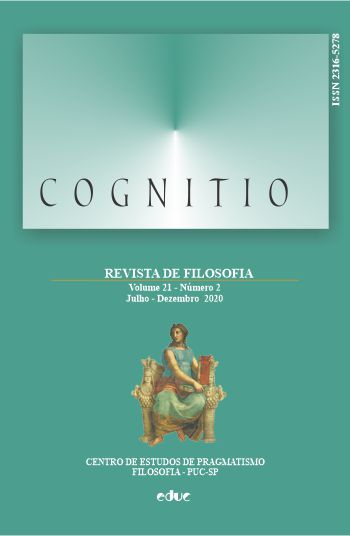What epistemologists talk about when they talk about reflection
DOI:
https://doi.org/10.23925/2316-5278.2020v21i2p307-320Keywords:
Agency, Epistemic individualism, Epistemic justification, ReflectionAbstract
In contemporary analytic philosophy, while some epistemologists claim that reflection—understood as a critical self-examination of belief—is a necessary condition for the attribution of valuable epistemic states, others reject this claim and maintain that philosophers tend to overestimate the value of reflection in their reports of epistemological phenomena. In this essay, we present a brief overview of this debate and outline the elements that constitute disagreement between epistemologists. Our diagnosis is that, despite radical disagreement, these positions converge, because they deal with reflection from an individualistic point of view, defining it as an agent’s private metacognitive performance of her own epistemic states. As well as being a reason for disagreement, this conception of reflection may be the reason that epistemologists misunderstand its place and value.Downloads
Published
2021-01-28
How to Cite
Silva Filho, W. J., & Rolla, G. (2021). What epistemologists talk about when they talk about reflection. Cognitio: Revista De Filosofia, 21(2), 307–320. https://doi.org/10.23925/2316-5278.2020v21i2p307-320
Issue
Section
Cognitio Papers









